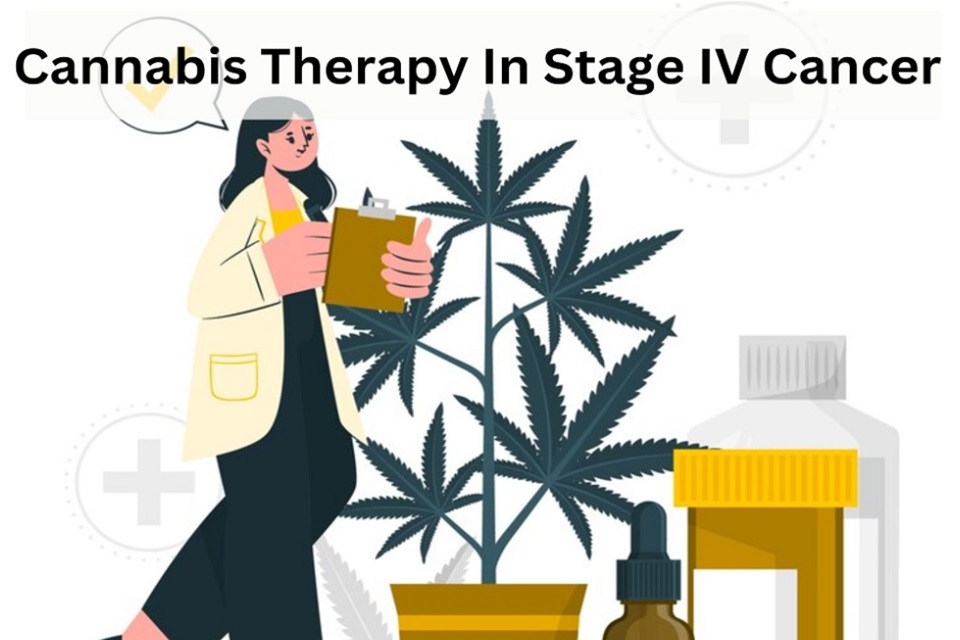Sleep Smarter: Uncovering The Secrets To Restorative Rest
Key Takeaways:
- Quality sleep is crucial for a healthier body and a sharper mind.
- Recognizing and supporting healthy sleep patterns can enhance every aspect of life.
- Simple changes to your evening routines and sleep environment improve overall rest.
- Achieving consistent, mindful sleep hygiene leads to lasting benefits.
- Research-backed insights guide you toward smarter, more restorative rest.
Why Restorative Sleep Matters For Everyone
Restorative sleep is much more than just a simple routine habit—it’s truly the cornerstone of long-term health and emotional stability. Quality sleep impacts every intricate system in the body, from significantly strengthening the immune system to effectively consolidating memories and regulating crucial hormones. According to comprehensive research by the National Sleep Foundation, most adults typically require at least 7 to 9 hours of restorative sleep each night to adequately recover both physically and mentally from the stressors of daily life. When this essential need isn’t met, the risks for chronic ailments, such as cardiovascular disease, obesity, and depression, increase dramatically, leading to a host of additional health concerns. The body utilizes sleep not only to detoxify the brain but also to repair vital tissue and to regulate key neurotransmitters—functions that are essential for optimal daily performance and well-being. Exploring holistic approaches, such as routines that integrate premium organic CBD wellness products or effective stress-reducing habits, can significantly help fortify your nights for more powerful and productive mornings.
Consistently getting restorative sleep creates a profound ripple effect that touches nearly all areas of life and well-being. Improved rest leads to sharper focus, faster recall, enhanced emotional resilience, and even a substantially reduced risk of accidents and burnout. People often notice that their relationships become more rewarding, productivity levels increase, and even their immune responses improve markedly when they prioritize smarter sleep habits. The key lies in discovering individualized techniques and strategies that make achieving healthy and restful sleep more attainable and sustainable for the long term, ensuring overall quality.
The Science Behind Healthy Sleep Patterns
Sleep is a complex and active process essential for overall health and well-being. It unfolds in distinct and predictable cycles, with each stage serving a specific function in restoring the body and mind. The early stages of light sleep, lasting approximately 5-10 minutes, facilitate a smooth transition into deeper stages, helping the body to relax. Following this are the stages of deep, or slow-wave sleep, which can last up to 40 minutes. During this time, significant physical restoration occurs, as muscle tissues are repaired and the body’s immune responses are enhanced, offering protection against illness.
REM (rapid eye movement) sleep, which typically occurs about 90 minutes after falling asleep and recurs multiple times throughout the night, is especially crucial for emotional regulation, creativity, and the processing of memories and learning. According to recent findings from the National Institutes of Health (NIH), disturbances during these critical sleep phases, caused by factors such as environmental noise, inconsistent lighting, or irregular sleep patterns, can severely hinder the restorative benefits of a full night’s rest. Research indicates that inadequate slow-wave or REM sleep is linked to a range of health issues, including impaired cognitive function and increased risk of chronic diseases. By carefully tracking your sleep patterns using wearable devices or dedicated apps, individuals can identify specific disruptions and, therefore, take targeted actions, such as adopting consistent sleep schedules or creating a sleep-friendly environment, to significantly improve the quality of their restorative sleep cycles.
Common Barriers To Better Sleep
Even small disruptions can significantly detract from sleep quality, leading to a cascade of negative health effects. Common offenders include late-night caffeine consumption, which stimulates the central nervous system, increasing alertness and delaying the body’s natural readiness for sleep. Studies have shown that caffeine can remain in the body for several hours, making timing crucial for those seeking quality rest. Furthermore, excessive exposure to blue light from sources such as smartphones, tablets, or computers has been proven to disrupt the circadian rhythm by tricking the brain into thinking it’s still daytime. This interference suppresses melatonin production, the hormone responsible for inducing sleepiness and regulating sleep cycles. Unmanaged stress also serves as a formidable barrier to sound sleep, with racing thoughts and anxiety hindering the transition from wakefulness to relaxation. In addition to these factors, environmental issues such as household noise, including loud appliances, and an uncomfortable mattress can exacerbate sleep disturbances, making it increasingly challenging for individuals to achieve uninterrupted rest. By recognizing these barriers early, individuals can take informed steps to mitigate their impacts, experimenting with various strategies such as establishing a consistent bedtime routine, limiting screen time before bed, and creating a comfortable sleep environment to promote deeper, more refreshing, and restful sleep, ultimately leading to more restorative rest.
Creating A Successful Sleep Routine
Building an effective sleep routine is essential for overall health and doesn’t necessarily require a dramatic lifestyle overhaul. Start with small, consistent changes that align with your body’s natural circadian rhythms, which typically cycle over 24 hours and influence sleep-wake patterns. Aim to maintain a consistent bedtime and wake-up time every day, as this steadiness helps regulate hormonal cycles, particularly the release of melatonin, which signals the body that it’s time to sleep.
In the hour before bedtime, prioritize reducing exposure to screens; the blue light emitted by devices can interfere with melatonin production. Instead, opt for gentle lighting, such as lamps or candles, which can create a calming atmosphere and signal to your body that it’s time to wind down. Consider transforming your bedroom into a sleep sanctuary; using blackout curtains can effectively block out intrusive streetlights, contributing to a more restful environment. Investing in quality, supportive bedding is also crucial, as it ensures physical comfort throughout the night and reduces disruptions caused by discomfort.
Avoid caffeine in the afternoon and evening, as its stimulating effects can linger for hours and disrupt your ability to fall asleep. Similarly, please resist the temptation to eat heavy meals late in the evening, as they can lead to discomfort and digestive issues that interfere with sleep quality. Incorporating physical activity into your daily routine, such as a brisk walk during the afternoon or light stretching, can promote deeper and more restorative rest. However, it’s advisable to avoid vigorous workouts too close to bedtime, as they can raise heart rates and make it more challenging to fall asleep. Implementing these small tweaks consistently can significantly enhance your sleep quality, resulting in improved daily functioning and overall well-being.
Mindfulness & Nighttime Rituals
Mindfulness is a powerful tool that can significantly enhance the transition from day to night, helping the mind shift from an active state to one of relaxation and calm. Engaging in mindful nighttime rituals—such as reading a physical book, practicing gentle yoga, or writing down thoughts in a journal—provides essential cues to your brain that it’s time to unwind and release the stress accumulated throughout the day. Incorporating guided meditations, listening to calming music, or employing nature sounds are effective techniques to alleviate anxiety and lower heart rates in preparation for sleep. Additionally, dedicating just a few minutes to deep breathing exercises or visualizing a serene environment can dramatically improve your ability to fall asleep faster and enjoy a deeper, more restorative sleep cycle. Since each individual’s optimal wind-down routine is distinctive, it’s beneficial to experiment with various mindfulness techniques to find what resonates most effectively with you. Over time, these mindful practices can evolve into ingrained habits, significantly enhancing both your ability to fall asleep and the quality of your sleep throughout the night.
Environmental Tweaks For Deeper Sleep
The physical characteristics of your sleep environment significantly influence your sleep quality and overall health, making them just as crucial as your behavioral routines. Maintaining a bedroom temperature between 60–67°F (15–19°C) is essential, as studies show that this range helps your body regulate its core temperature effectively, promoting deeper and more restorative sleep cycles. To combat the disruptive effects of urban light pollution, incorporating blackout curtains can create a darker environment that is conducive to melatonin production, which is vital for initiating sleep. Additionally, white noise machines or earplugs can effectively mask disruptive sounds, aiding in uninterrupted rest. Selecting a mattress that strikes a balance between firmness and breathability is crucial; the right support can prevent discomfort and ensure proper spine alignment throughout the night. Moreover, sensory elements such as scent also play a substantial role in sleep quality. For instance, the use of essential oils like lavender and chamomile has been scientifically linked to quicker sleep onset and improved sleep continuity. By implementing these thoughtful upgrades to your sleep environment, you can create a sanctuary that not only makes sleep more inviting but also enhances the quality and restorative benefits of your nightly rest.
How Sleep Affects Daytime Performance
The influence of proper rest extends significantly into the daylight hours, affecting various aspects of our daily functioning. When you’re well-rested, it becomes substantially easier to maintain focus, solve complex problems efficiently, and respond flexibly to challenging stressors. Research indicates that even a modest improvement in sleep duration or quality—such as aiming for an additional 30 minutes of restorative sleep—can lead to notable enhancements in cognitive functions, including sharper memory retention, increased creativity, and a more positive, optimistic outlook throughout the day. Conversely, chronic sleep deprivation, even in small amounts, can have detrimental effects on cognitive reflexes, impair critical judgment skills, and complicate emotional regulation, leading to heightened irritability or anxiety. The ripple effects of insufficient sleep are felt across various environments, including classrooms, offices, and homes, ultimately affecting productivity levels, interpersonal relationships, and overall life satisfaction and happiness. Therefore, prioritizing smarter sleep practices, such as establishing a consistent sleep schedule and creating an optimal sleeping environment, pays off by fostering greater alertness, resilience, and an enhanced joy in everyday activities. This investment in sleep is not merely a personal benefit but also contributes to healthier communities and societies.
The Role Of Professional Guidance
Persistent and restless nights—particularly those exacerbated by conditions such as insomnia, sleep apnea, and restless leg syndrome—often indicate that simple lifestyle changes may not be enough to resolve these issues. If sleep disruptions continue to trouble you despite your dedicated attempts to establish better sleep habits, it may be time to consult a sleep professional. These specialists are equipped to conduct comprehensive sleep studies that monitor physical parameters during sleep, allowing for accurate diagnoses of specific sleep disorders. Additionally, they can recommend effective treatments like cognitive-behavioral therapy for insomnia (CBT-I). This structured program has demonstrated substantial effectiveness in addressing various chronic sleep issues by targeting the underlying psychological patterns that disrupt sleep. Furthermore, these interventions target both biological and behavioral factors that contribute to poor sleep, offering a comprehensive approach to improving sleep quality and overall well-being. It is crucial to seek professional guidance if you experience persistent sleep difficulties; often, expert intervention serves as the vital element needed to achieve truly restful sleep and improve overall health and quality of life.
Improved Learning For Better Rest
Prioritizing sleep is a lifelong journey that requires adapting to new research and individual changes throughout life stages. Staying informed about emerging scientific discoveries, such as guidelines and resources from the National Sleep Foundation or innovative studies from the National Institutes of Health (NIH), empowers you to create effective, personalized sleep routines. Engaging with deeper guidance can enhance your understanding; consider incorporating expanded strategies and the latest wellness trends to promote your well-being further. These may include evidence-based practices, such as cognitive behavioral therapy for insomnia (CBT-I), or incorporating premium, organic CBD wellness solutions into your regimen. Treat your sleep habits as an ongoing experiment: be open to making adjustments based on your unique needs, celebrate the positive changes you observe, and embrace the journey toward consistently restorative rest. Each incremental shift in your sleep practice, whether through optimizing your sleep environment or establishing a regular sleep schedule, brings you closer to brighter mornings and a more energized, balanced life.
Continue reading















